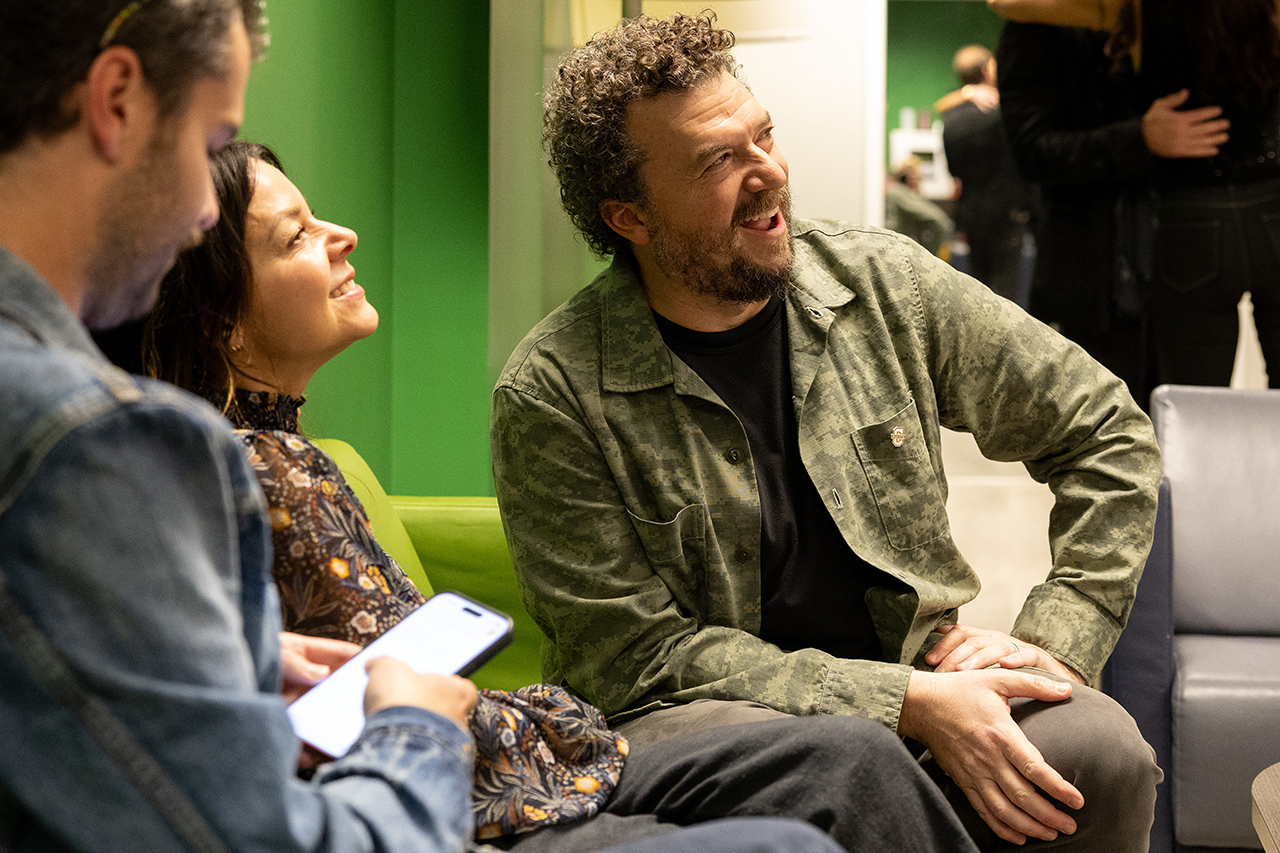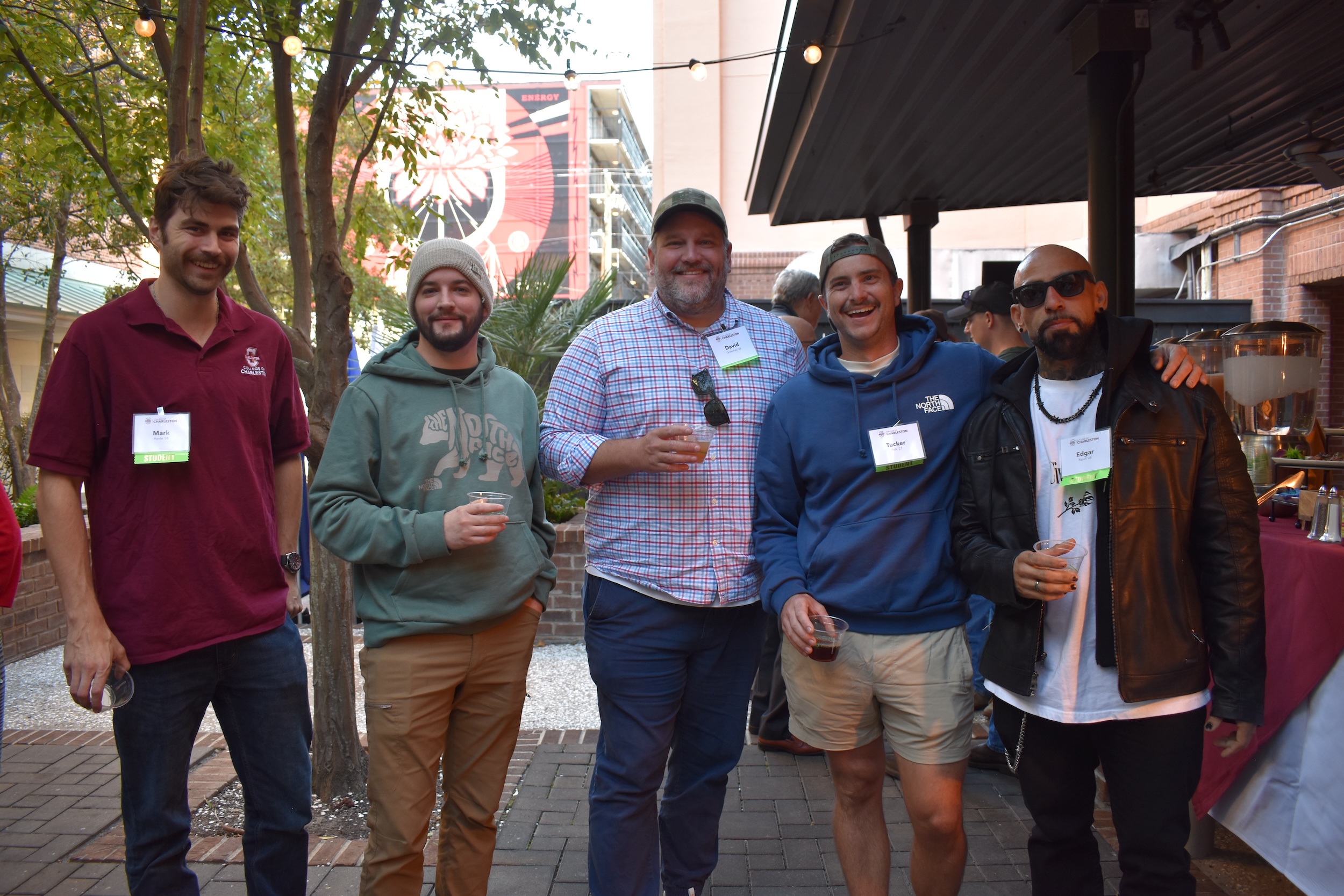Things Are Hopping at Stono Preserve
Maya Mylott, a marine biology and environmental sustainability studies double major in the Honors College, is researching how green tree frogs are impacted by freshwater salinization.
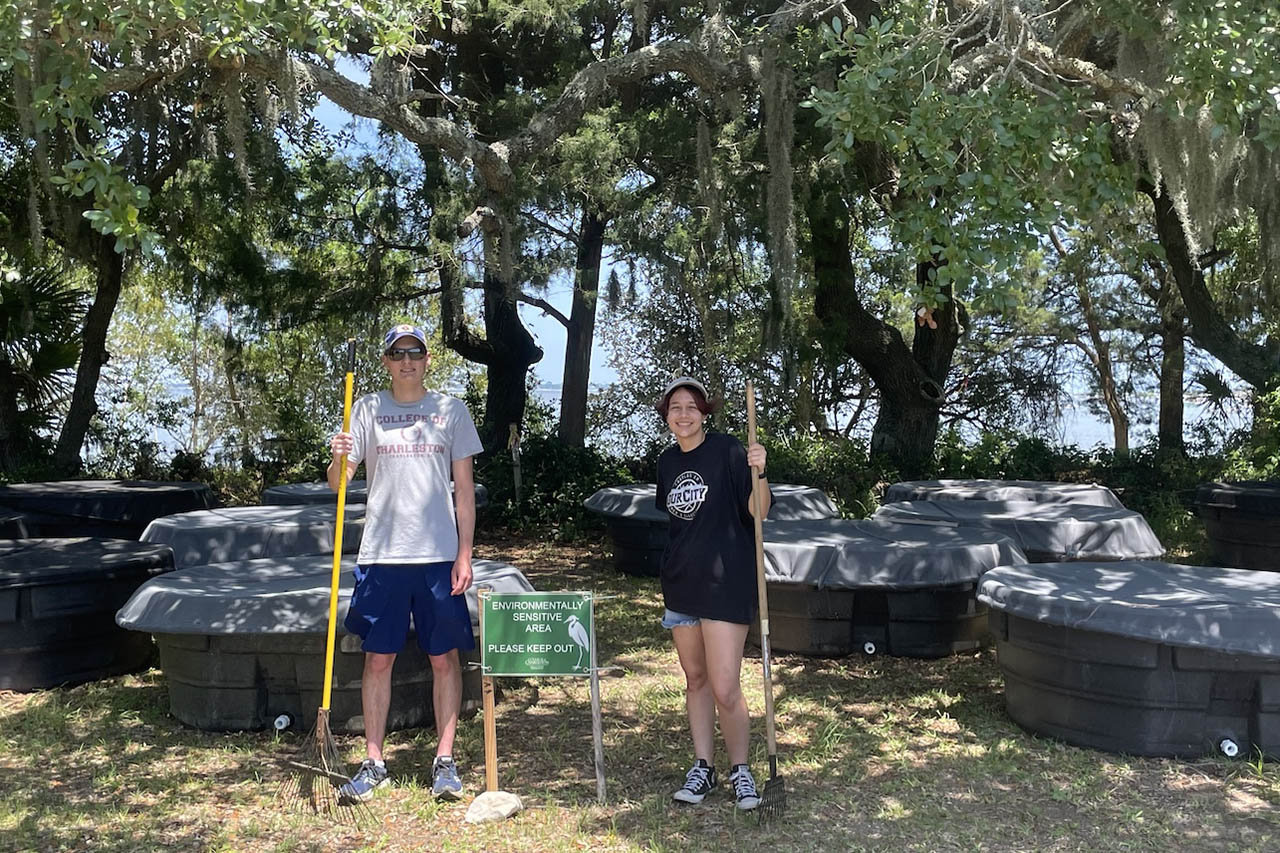
Above: Alex Barron, a biology major in the Honors College, and Maya Mylott with the cattle tanks used to test the impact of different levels of salinization on the freshwater ecosystem.
It’s 11 p.m. and the cacophony of frogs is music to Maya Mylott’s ears. In her waders, Mylott is hip deep in the freshwater pond at Stono Preserve collecting tree frog specimens for her research project.
For Mylott, a recipient of the School of Natural and Environmental Sciences General Scholarship, the research project opened a whole new world. She had never conducted fieldwork before, which she now loves, and she had also focused more on individual organisms rather than entire ecosystems.
Together with Allison Welch, associate professor of biology, the marine biology and environmental sustainability studies double major in the Honors College is researching how freshwater salinization impacts the freshwater ecosystem, in particular green tree frogs.
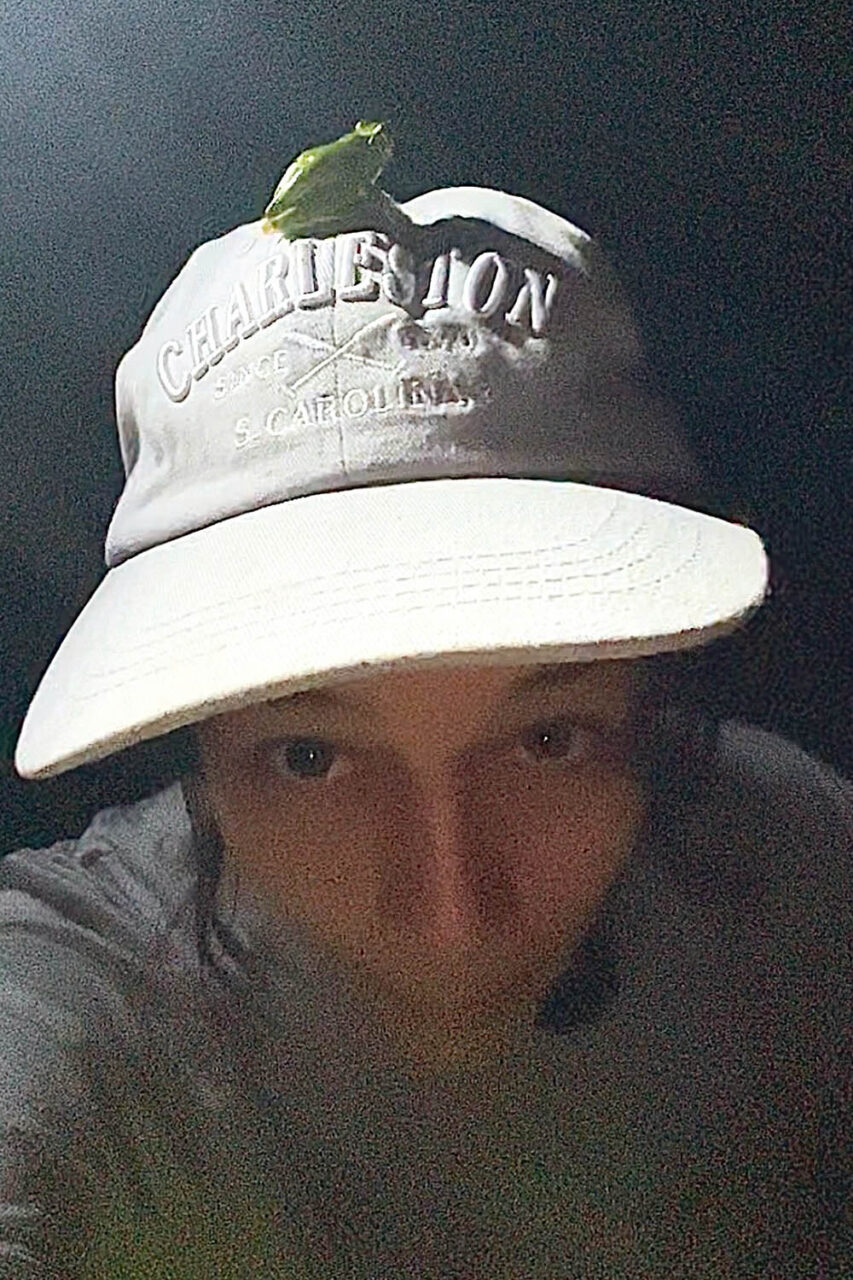
Mylott explains that salinization of freshwater ecosystems happens through nature, such as through storm surges, and human intervention, such as road salt and fertilizers. With Welch and her team, Mylott is studying how salinization interrupts the trophic levels, basically a food web – in this case, tree frog eats algae, algae uses sunlight to make food.
“When Dr. Welch spoke to me about her research on frogs, I was really intrigued, especially about the frogs,” says Mylott, who has since received many frog-themed gifts. “Since being on the research team, I’ve really enjoyed learning about the interacting drivers of our ecosystem.
“I also feel very fortunate to work with Dr. Welch,” she adds. “She is the best professor and advisor. Dr. Welch is always willing to sit down and work through problems, and it never feels one sided. Plus, in the lab, she is always willing to help walk through how to actually do the research. She’s also been a fabulous open resource about grad school options.”
As part of the research process, Mylott really appreciates learning how to write a grant. She wrote the first grant with Welch, but the second grant she wrote by herself – with a little help and guidance.
For the first grant from the Undergraduate Research and Creative Activities, Mylott and two other students replicated freshwater environments found in nature in individual cattle tanks with different levels of salinization. Mylott’s role was to study how the tadpoles were affected by the algae that had grown in elevated salinity. She found that with the elevated salinity, both the algae and the tadpoles grew larger. She presented her findings for her bachelor’s essay at the fall research symposium and in Atlanta at the Society for Integrative Biology Conference.
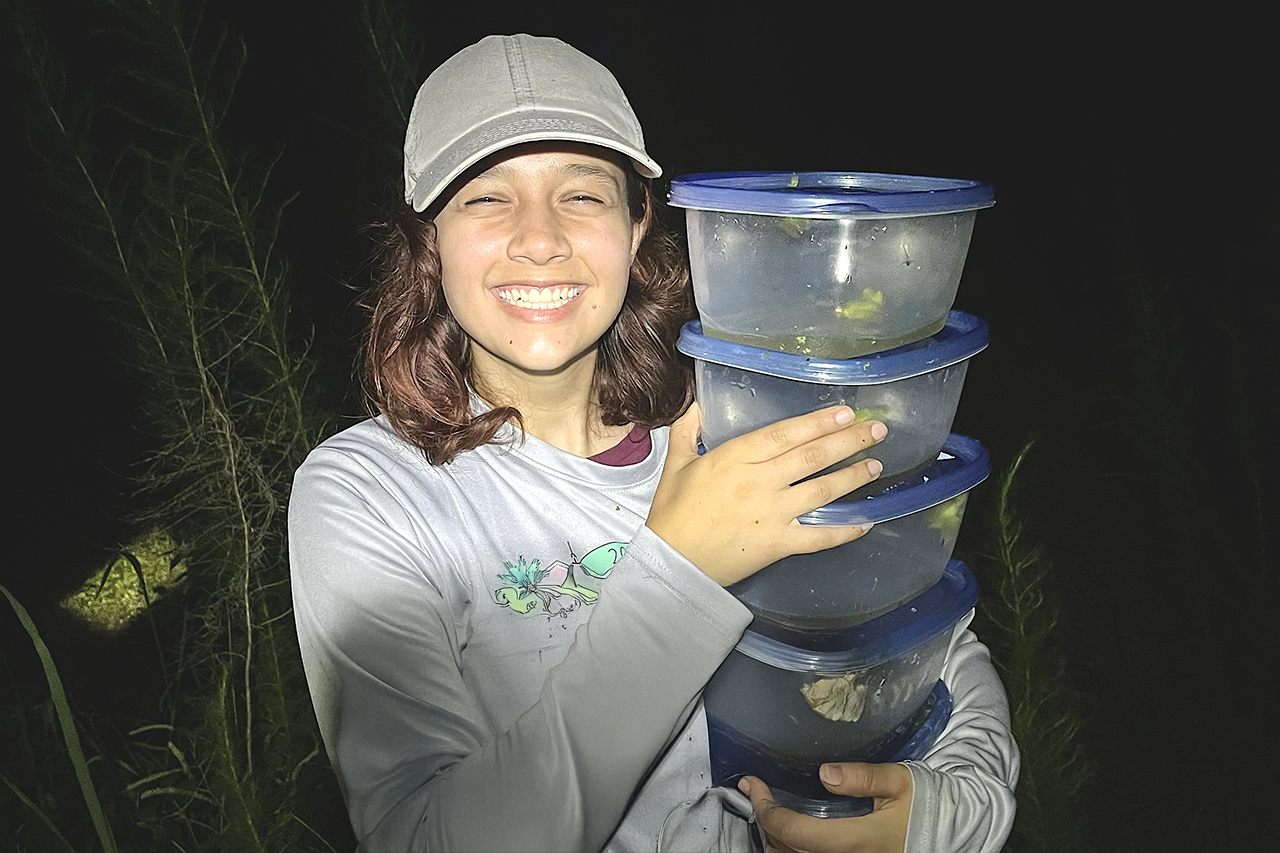
“SICB was such an incredible experience,” says Mylott. ”I got to talk with so many intelligent students, and I really loved being in an environment where scientists were so enthusiastic about sharing their research!”
For the second grant, Mylott received the South Carolina IDeA Networks of Biomedical Research Excellence, or INBRE, award to conduct a food and salinity lab experiment.
Now Mylott is researching if more food for the tadpoles leads to less salinity stress.
“It’s been such a pleasure working with Maya in my lab,” says Welch. “She has pushed our research in new directions, and I can always count on her to help everyone in the group stay organized and on track.”
Mylott, who hails from Chicago but has South Carolina roots, always knew she wanted to study science, but she had focused on the biology of individual organisms rather than the larger ecosystem. Her research project with Welch completely changed her trajectory. Now, when she graduates in December 2025, Mylott plans to attend graduate school with a focus on marine ecology and how humans are impacting the environment
“I wouldn’t be where I am without Dr. Welch,” says Mylott.

